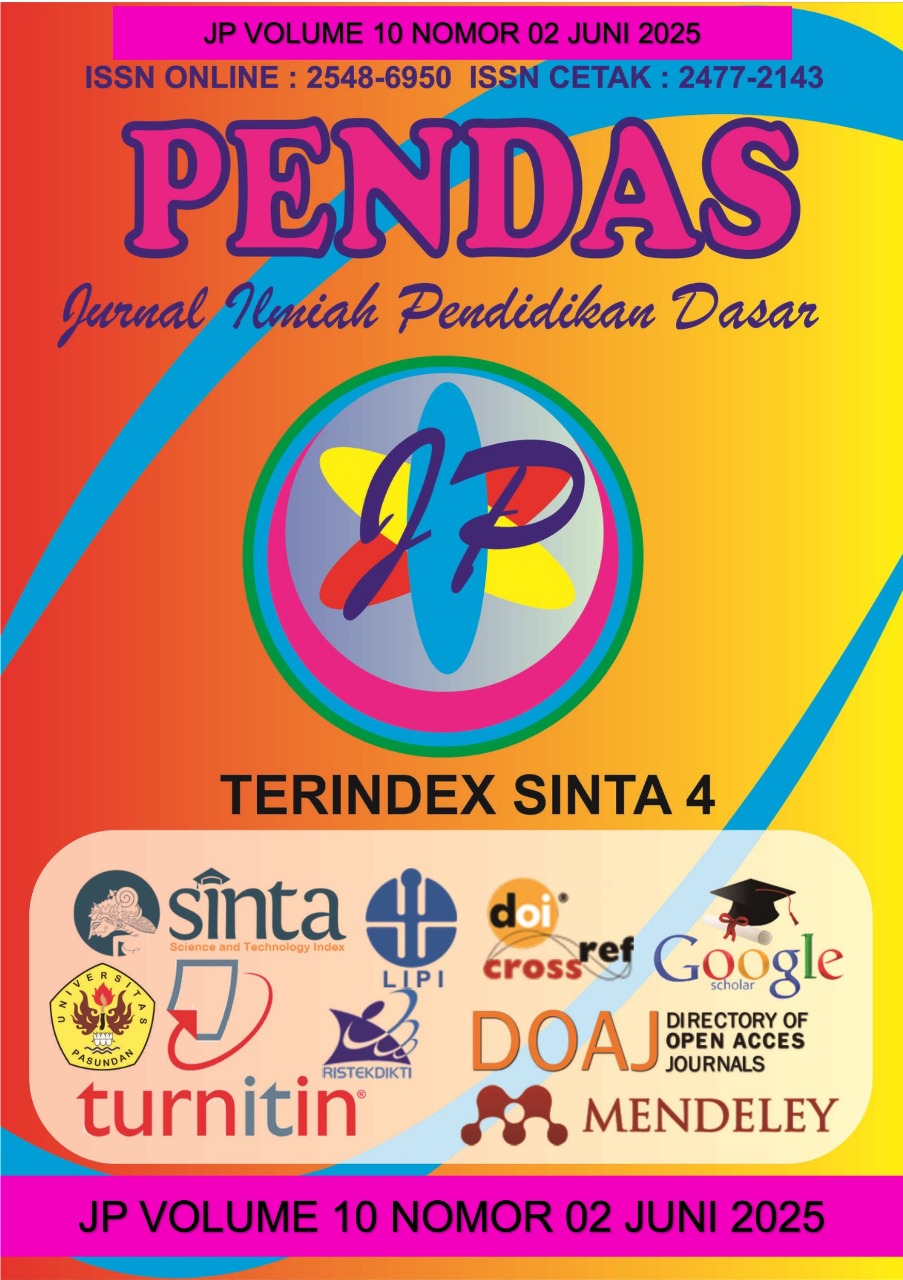ANALISIS PENERAPAN PROTOKOL KESELAMATAN DAN KESEHATAN KERJA DI LINGKUNGAN SEKOLAH: STUDI LITERATUR PADA SEKOLAH ISLAM TERPADU
DOI:
https://doi.org/10.23969/jp.v10i02.24024Keywords:
Occupational Health and Safety (OHS), Islamic school, school leadership, student participation, values-based safetyAbstract
The implementation of Occupational Health and Safety (OHS) protocols in schools is essential for fostering a safe, healthy, and productive learning environment. This study aims to analyze how OHS protocols are applied in Integrated Islamic Schools (SIT) by reviewing recent literature published between 2020 and 2025. Using a literature review method, this research identifies five key themes: integration of Islamic values, school leadership, student participation, institutional readiness, and social collaboration. The findings show that values such as amanah (responsibility), ihsan (excellence), and ukhuwah (brotherhood) strengthen the internalization of safety culture in SIT environments. Leadership that is transformational and religiously grounded plays a crucial role in shaping sustainable OHS practices. However, various systemic limitations, including lack of resources, contextual SOPs, and formal reporting systems, continue to hinder optimal implementation. This study concludes that OHS protocols in SIT require an adaptive, integrative, and values-based approach that aligns with the spiritual and structural uniqueness of Islamic education institutions.
Downloads
References
Aminah, N., & Sulaiman, R. (2022). Islamic values in health protocol compliance. Jurnal Pendidikan Karakter, 12(2), 233–245.
Fauzi, M., & Hidayat, T. (2020). Nilai Islam dalam penguatan protokol kesehatan di sekolah. Al-Tarbiyah, 35(1), 91–106.
Farhana, D., & Sudrajat, A. (2021). Evaluasi kesiapan protokol K3 di sekolah swasta. EduSafe, 8(3), 99–114.
Fullan, M. (2020). The new meaning of educational change (5th ed.). New York: Teachers College Press.
Hanifah, U., & Zuhri, S. (2022). Manajemen risiko di sekolah Islam terpadu. Jurnal Manajemen Pendidikan Islam, 7(2), 189–205.
ILO. (2021). Safe schools and healthy learning environments. Geneva: International Labour Office.
Kemendikbudristek. (2022). Peraturan Menteri Pendidikan, Kebudayaan, Riset, dan Teknologi Nomor 21 Tahun 2022 tentang Standar Penilaian Pendidikan. Jakarta: Kemendikbudristek.
Lestari, A., & Kurniawan, H. (2023). Pelibatan siswa dalam program K3 sekolah. Jurnal Pendidikan Dasar, 20(1), 78–92.
Maulida, N., & Prasetyo, D. (2021). Sistem pelaporan insiden K3 di SD Islam. EduHealth Journal, 6(4), 204–215.
Nasution, A., & Zulkarnain, F. (2022). Nilai-nilai keislaman dan budaya K3 di sekolah. Jurnal Pendidikan Agama Islam, 17(1), 120–134.
Nugraha, A., Fitriyani, D., & Ramadhan, L. (2021). Tanggapan guru terhadap pelaksanaan K3 di sekolah. Jurnal Inovasi Pendidikan, 10(3), 221–234.
Prabowo, Y., & Wulandari, D. (2021). Transformational leadership in school safety management. Journal of Educational Leadership, 9(2), 88–102.
Rizal, H., Santoso, B., & Damayanti, N. (2022). Model penilaian risiko K3 di lingkungan sekolah. Safety & Education, 7(1), 45–59.
Salsabila, N., Wijaya, M., & Amalia, R. (2023). Tantangan penerapan K3 berbasis budaya lokal. Jurnal Pendidikan Multikultural, 11(2), 157–170.
Saragih, T., & Nugroho, A. (2022). Urgensi budaya sadar risiko di sekolah dasar. Jurnal Edukasi Keselamatan, 5(2), 131–143.
Sari, I., & Mubarak, M. (2023). Internalisasi nilai Islam dalam pendidikan karakter K3. Tarbiyah Islamiyah, 15(1), 67–82.
Suherman, A., & Fitri, Y. (2021). Analisis kesiapan protokol keselamatan sekolah dasar. EduCare, 9(1), 98–110.
Wahyudi, H., & Indrawan, A. (2022). Tantangan manajemen K3 di sekolah swasta keagamaan. Jurnal Manajemen Sekolah, 14(3), 145–160.
WHO. (2020). Health-promoting schools: A global framework. Geneva: World Health Organization.
Yuliana, D., Ramdhan, R., & Fauziah, R. (2023). Peran kepala sekolah dalam membangun budaya K3. Jurnal Administrasi Pendidikan, 28(1), 60–75.
Downloads
Published
Issue
Section
License
Copyright (c) 2025 Pendas : Jurnal Ilmiah Pendidikan Dasar

This work is licensed under a Creative Commons Attribution 4.0 International License.



















